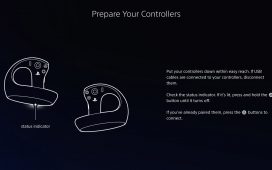
Varjo, the high-end XR headset creator, today announced the release of a new smartphone-based 3D scanning service for enterprise that promises to let users quickly build photorealistic environments and explore them in both VR and on traditional screens.
Called Teleport, the paid app allows users to capture and recreate real-world locations, something the Finland-based company says takes just 5–10 minutes, which is notably faster than traditional photogrammetry methods.
Supported capture devices include iPhones and iPads running iOS 17 or later, which includes a fairly large swath of hardware—from iPhone XR and above, and Apple’s 8th gen iPad and above.
The resultant “digital twins” can be accessed on phones, PCs, or explored with either Varjo’s XR headsets or other major PC VR headsets, the company says.
Powered by advances in Gaussian Splatting and NVIDIA GPU-trained generative models, Teleport’s 3D models are processed in the cloud and then rendered on-device, which means an Internet connection is only required to initially download the model, but not explore it.
Priced at $30 per month, Varjo is currently offering a seven-day free trial of Teleport. Signing up also allows users to view a host of captures for free in standard and high-definition via its web viewer, as well as the highest-level quality captures via its desktop client.
The launch of Teleport comes alongside an expansion of Varjo’s Series D funding round, bringing in new investors such as Beyond Capital, Nishikawa Communications, and NVIDIA. Varjo hasn’t disclosed to amount of its latest funding raise, however the company tells Road to VR this brings its lifetime funding to approximately €180 million ($188 million USD).
The company says funding will support its efforts to accelerate adoption of its XR hardware and software solutions for industrial applications, with CEO Timo Toikkanen noting Varjo will leverage AI and machine learning to further integrate real and virtual environments, enhancing productivity and efficiency for its industrial clients.
Meanwhile, Meta is working on a similar consumer-facing product, which was announced in September, called Horizon Hyperscape. Released as a demo experience to showcase Meta’s vision for photorealism, Meta says that at some point creators will also be able to “build worlds within Horizon by using a phone to scan a room and then recreate it,” although there’s no word on when we can expect the company to roll out the service.










